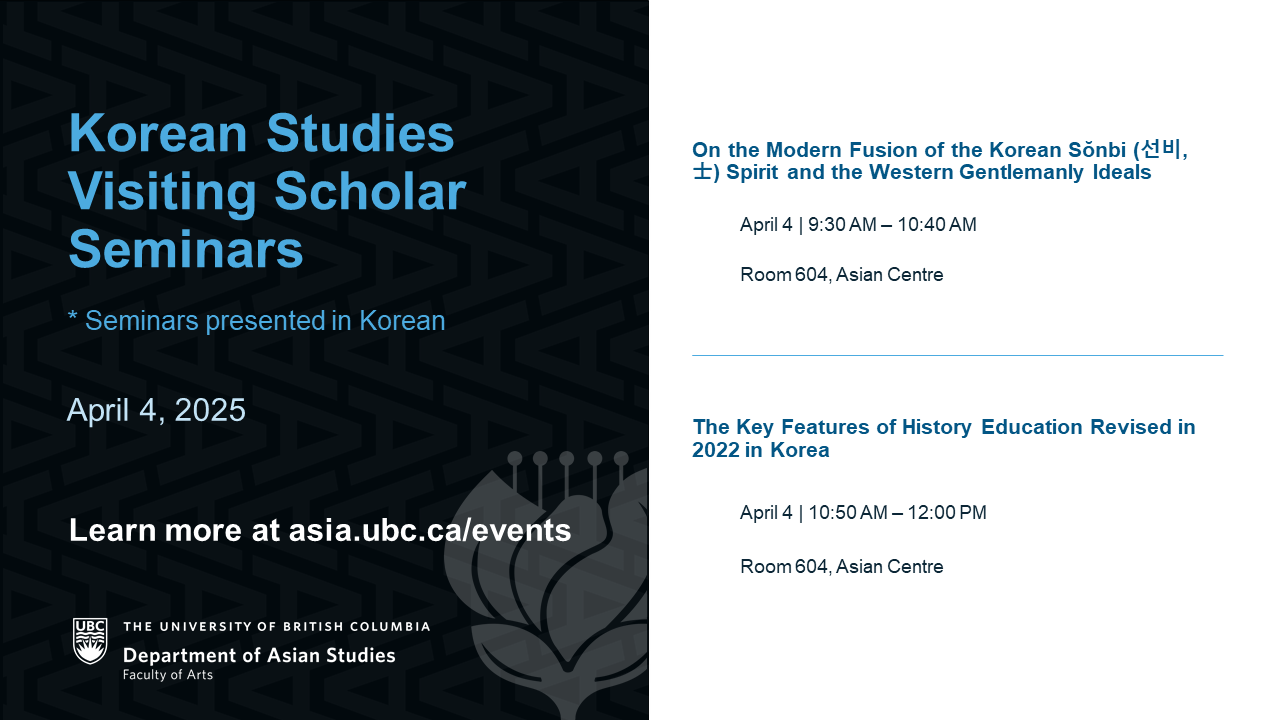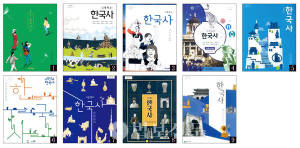

Date & Time:
Friday, April 4, 2025 | 9:30 AM – 12:00 PM
Location:
Room 604, Asian Centre
1871 West Mall, Vancouver, BC
This event is free and open to the public. No registration is required. These seminars will be presented in Korean.
Seminar 1 (9:30 AM – 10:40 AM)
On the Modern Fusion of the Korean Sŏnbi (선비, 士) Spirit and the Western Gentlemanly Ideals
Abstract


Speaker
Dr. Jae-hwa Kim (PhD, Seoul National University, a visiting professor at UBC) is an associate professor in the Department of Humanities at Republic of Korea Naval Academy. His research involves the Confucian traditions of Korea and East Asia. His major publications include Shim Dae-Yoon – A Star of Chosŏn Korea’s Confucian Classics Studies: The Last Pragmatic (Silhak) Scholar in Chosŏn, Re-established Confucianism in the 19th Century (selected as a 2024 Se-jong Book in the academic category) and Maritime Studies and the Humanities (2022).
Seminar 2 (10:50 AM -12:00 PM)
The Key Features of History Education Revised in 2022 in Korea
Abstract


Speaker
Dr. Hae Young Lee (PhD, Korea National University of Education, a visiting professor at UBC) is an associate professor of history education at Gongju National University of Education. Dr. Lee’s research involves the development of history education programs for elementary and middle school students, as well as publication of history textbooks. Dr. Lee’s recent publications include “A Study of Directions for Elementary History Education Based on Preservice Teachers’ Lesson Analysis Responses,” Brain, Digital & Learning 13(3); “Narrative Analysis of Children’s History Books Using Systemic Functional Linguistics,” KOED 133; and “Analysis of Students’ Concept of Time Using a Linguistic Approach,” Korean Journal of Teacher Education 37(4).